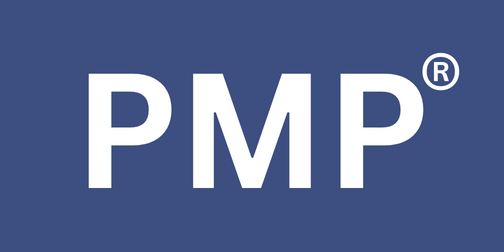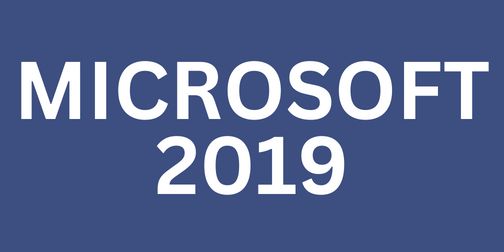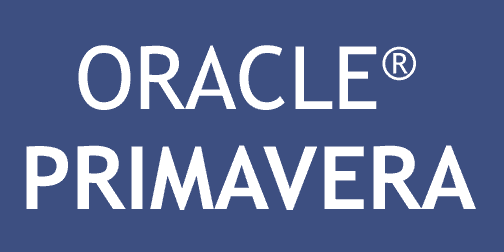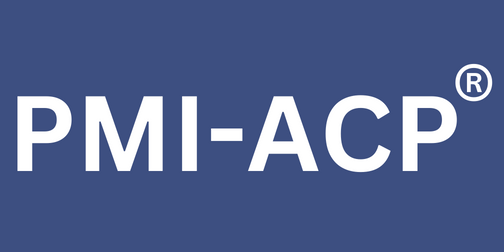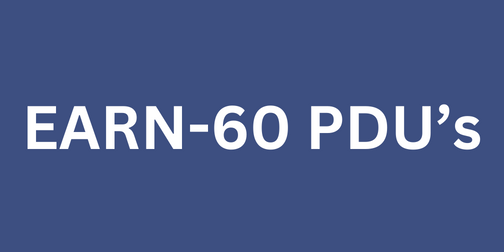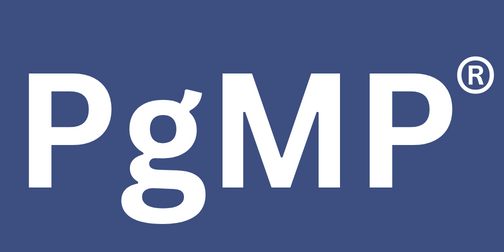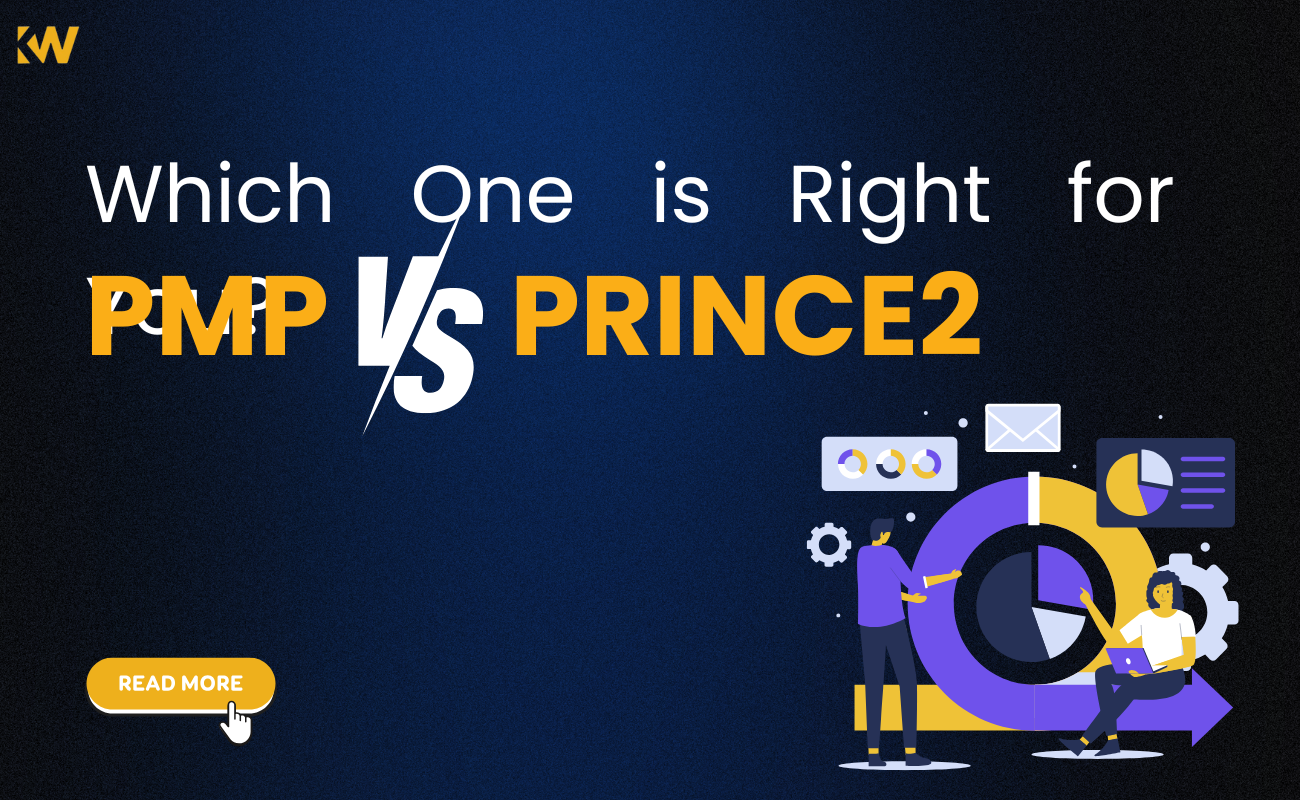
PMP vs PRINCE2: Which One is Right for You?
Posted On December 16, 2024 - 13:36 PM
In the competitive and dynamic industry of project management, certifications demonstrate your knowledge, expertise and capability to execute efficient projects. In the vast array of certificates available, PMP (Project Management Professional) and PRINCE2 (Projects IN Controlled Environments) are some of the best well-known and prestigious qualifications. However, picking between these credentials can be difficult. This blog will analyze pmp certification and PRINCE2 regarding method, applicability and exam structure, costs and much more. We will aid you in making an informed choice.
Understanding PMP and PRINCE2
What is PMP?
It is a PMP certification provided through the Project Management Institute (PMI) an internationally recognized organisation. It is focused on the project management methods as described by the PMBOK(r) Guide (Project Management Body of Knowledge). PMP is industry-neutral and focuses on:
-
Project management processes.
-
Strategic business and leadership capabilities.
-
Producing successful projects with the most predictive (waterfall) agile or hybrid methods.
PMP is widely recognized as the standard for professionals in project management.
What is PRINCE2?
PRINCE2, designed through government officials from the UK government and controlled by AXELOS is an approach based on processes to manage projects. It offers a systematic process for managing projects and concentrates on:
-
Define clear roles and responsibilities.
-
A planning method based on product.
-
The defined processes for the project's delivery.
PRINCE2 is especially loved across Europe as well as Commonwealth countries, however its principles are universally applicable.
Key Differences Between PMP and PRINCE2s
PMP and PRINCE2 are two leading project management certifications, each with distinct focuses and approaches. PMP emphasizes expertise and experience in managing projects through a comprehensive understanding of processes. It adopts a knowledge-based approach that covers various techniques, tools, and methods essential for effective project management. On the other hand, PRINCE2 provides a structured framework with a process-based approach, concentrating on governance and clearly defined roles, making it particularly suited for formal environments while remaining comprehensible.
Flexibility is another key differentiator. PMP is versatile and can be applied across various sectors and project types. In contrast, PRINCE2 is ideal for projects in formal settings but offers adaptability as well. Regarding global reach, PMP is highly recognized worldwide, particularly in North America and Asia, whereas PRINCE2 is extensively used in Europe and Commonwealth countries. When it comes to exam difficulty, PMP poses a greater challenge with its situational and scenario-based questions that test practical application, while PRINCE2 focuses on understanding and implementing its structured approach.
Exam Structure
PMP Exam
The PMP test is comprised of:
-
Quantity of Questions: 180 questions.
-
Format: Multiple-choice, multiple responses, drag-and-drop, as well as a hotspot.
-
Duration: 230 minutes.
-
Domains:
-
People (42%)
-
Process (50%)
-
Business Environment (8%).
Exams for PMP are scenario-driven and require candidates to apply the concepts they have learned to real-world issues.
PRINCE2 Exam
PRINCE2 includes two levels:
-
Foundation Level
-
The number of questions: is 60 questions.
-
Format: Multiple-choice.
-
Duration: 60 minutes.
-
Passing Score: 55%.
-
Practitioner Level
-
Quantity of Questions: The number of questions is 68.
-
Format: Objective Testing.
-
Duration: 2.5 hours.
-
Passing Score: 55%.
The PRINCE2 Practitioner exam is focused on the application of the method to specific case studies.
Cost Comparison
The costs associated with obtaining PMP and PRINCE2 certifications vary based on exam fees and training expenses. For PMP, the exam fee is approximately (INR 51,000+Taxes) approx for non-PMI members and (INR 39,091) for PMI members. Additionally, the training cost for PMP certification typically ranges from (INR 12,000 to INR 40,000), depending on the training provider and delivery method.
In comparison, PRINCE2 certification involves separate fees for its two levels: the Foundation exam costs around (INR 28,000+Taxes), while the Practitioner exam is approximately (INR 30,000+Taxes). The combined training cost for PRINCE2 certification generally falls between (INR 15,000 and INR 30,000), making it slightly more affordable in some cases. Both certifications represent a significant investment but are highly valued in the project management field.
Costs can vary based on the training provider and the location. Furthermore, pmp certification requires ongoing maintenance and PRINCE2 certifications are valid for life once earned.
Prerequisites
PMP Prerequisites
To take the PMP exam, you will need:
-
A four-year bachelor's degree that includes 36 months of experience in project management as well as 35 hours of training and education in management (or CAPM(r) certificate).
-
A graduation certificate from a high school or an associate's degree that includes 60 months of work experience with 35 hours of education in project management.
PRINCE2 Prerequisites
-
There aren't any prerequisites to the PRINCE2 Foundation test.
-
To pass the Practitioner exam Candidates must pass the Foundation test.
Applicability and Industries
PMP Applicability
PMP is versatile and highly valued in many industries such as:
-
Software development and IT.
-
Engineering and construction.
-
Healthcare.
-
Banking and finance.
PRINCE2 Applicability
PRINCE2 is a popular choice within structured settings, especially in:
-
Government projects.
-
The public sector is a key player.
-
Management of IT services.
-
Telecommunications.
Pros and Cons
PMP
Pros:
-
Internationally recognized.
-
The emphasis is on leadership as well as technical abilities.
-
It provides information that applies to all industries.
Cons:
-
It is expensive and takes a lot of time to plan for.
-
Needs regular Maintenance (60 PDUs every three years).
PRINCE2
Pros:
-
Straightforward entry-level requirements.
-
The focus is on governance and process.
-
Lifetime certification valid for life (for the Practitioner and Foundation).
Cons:
-
A lesser emphasis is placed on interpersonal and leadership.
-
A limited number of people are interested In North America.
Choosing the Right Certification
The choice between PMP or PRINCE2 is contingent on various aspects:
Career Goals
-
PMP is typically the most preferred option if you want a job within North America or in industries like IT.
-
In the roles of Europe or the government sector, PRINCE2 could be of greater worth.
Project Environment
-
If you often manage complicated multi-functional projects The PMP's focus on planning and implementation is useful.
-
PRINCE2's structured approach is great for projects that require strict governance.
Learning Style
-
PMP requires a greater understanding of the theories and their use.
-
PRINCE2's process-driven model could be more accessible for newcomers to comprehend.
Budget and Time
-
PMP is a major commitment of time and money.
-
PRINCE2 is less expensive and easier to achieve.
Combining PMP and PRINCE2
Many professionals decide to take both of these certifications to increase their capabilities and increase their marketability. PMP gives a thorough understanding of the principles of project management and PRINCE2 provides an organized approach to project management. Together, they form an efficient combination for managing projects that are of any size or degree of complexity.
Conclusion
Both prince2 certification and PMP are outstanding certifications that can help you advance your career. The decision you make should be influenced by your goals for the future along with your industry, the environment in which you are working and your budget. While PMP provides a complete internationally recognized framework and methodology, PRINCE2's methodological structure can be extremely beneficial for certain industries and areas. Take note of your goals for the profession and select the certification that best aligns with your goals.
Check Out This Blog : How to Create a PMP Study Plan That Works












